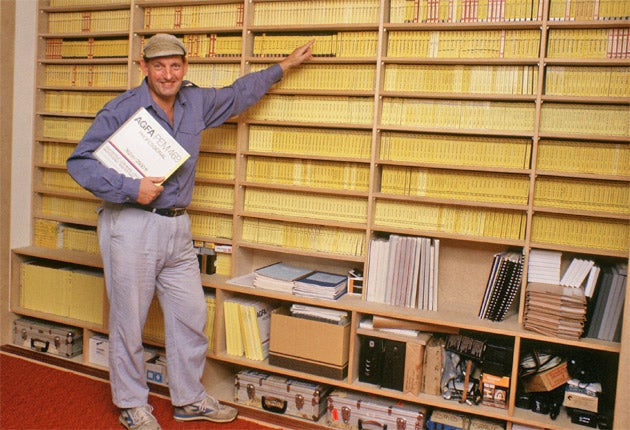David Fanshawe: Composer and explorer best known for 'African Sanctus'

On accepting an honorary degree as a Doctor of Music at the University of Bristol last November, the composer and explorer David Fanshawe described his "life's missions": "to celebrate the universal language of music; to record for posterity endangered World Music, threatened with extinction; to seek inspiration for my own compositions – thus uniting musical worlds apart."
His best-known and most influential work was African Sanctus (Philips, 1975), which fused a choral mass with field recordings of traditional music he had made on extensive travels in Africa between 1969 and 1975, and won him an Ivor Novello Award. That year, the project was also the subject of his only published book, and a BBC TV documentary.
When co-editing the first edition of The Rough Guide to World Music (1994), the writer and film-maker Simon Broughton wrote a chapter based largely on an interview with Fanshawe about his later work in the Pacific. He described Fanshawe's legacy: "His importance was in pioneering enthusiasm for other musical cultures and using them in a new way of composing – seeing the BBC film about African Sanctus was without doubt one of the things that made me realise how much amazing music there is in the world."
David Fanshawe was born in Paignton during an air raid. He was educated at St George's School, Windsor and Stowe, where he struggled with mild dyslexia but showed promise in film, music and drama. On leaving school in 1959 he landed a job at a small film company in Wimbledon, Merton Park Productions, but soon set off on the first of his travels, to Europe in 1962.
In 1965 he won a Foundation Scholarship to study under John Lambert at the Royal College of Music, and in 1966, produced his first significant work the 17-minute orchestral piece Requiem for the Children of Aberfan. The same year he also began exploring the Middle East, which led him to compose Salaams (1970) a work based on rhythms he had learnt from pearl divers in Bahrain.
Between 1969 and 1975 he travelled widely in North and East Africa, partly funded by the Ralph Vaughan Williams Trust and a Churchill Fellowship. This resulted in around 600 field recordings of the indigenous musicians he met and gained the trust of, some of whose work went into the creation of African Sanctus.
While based in London between trips during the 1970s, he also pursued a successful parallel career composing scores for over 30 films and television programmes, including Tarka the Otter, When the Boat Comes In, Three Men in a Boat, England their England and Softly, Softly. However, the travel bug bit again in 1978, when he began to explore the Pacific region. By 1981, with his then wife Judith and their two young children, Fanshawe relocated to Fiji, which he used as a base for his travels. Back in London and divorced by the middle of the decade, he remarried and resettled in Australia, from which he continued his journeys through Melanesia, Micronesia and Polynesia. He eventually made around 2,000 recordings.
The family returned to the UK in 1992, settling in Wiltshire, where Fanshawe established his archives and continued to compose. From the mid-1990s on, a number of his field recordings were released on the ARC, Saydisc and Nonesuch labels.
Aside from African Sanctus, Fanshawe's work has been the subject of three other documentaries: Arabian Fantasy (1976), Musical Mariner (1987) and Tropical Beat (1995). Significant later compositions include Fanfare to Planet Earth, Millennium March and Pacific Song – a movement for choir, flute and drums, inspired by Tongan music – the only completed part of his planned Pacific Odyssey.
Jon Lusk
David Arthur Fanshawe, composer and explorer: born Paignton, Devon 19 April 1942; married firstly Judith Croasdell Grant (one son, one daughter), secondly Jane Bishop (one daughter); died Swindon 5 July 2010.
Join our commenting forum
Join thought-provoking conversations, follow other Independent readers and see their replies
Comments
Bookmark popover
Removed from bookmarks